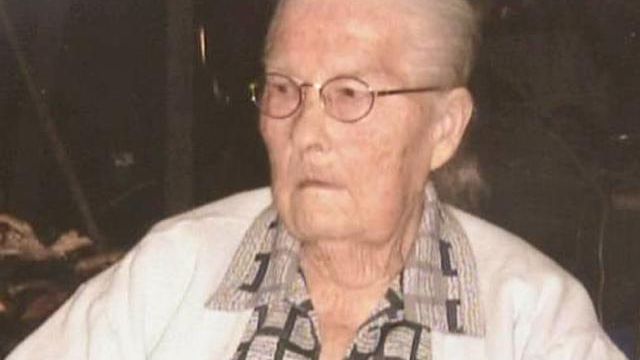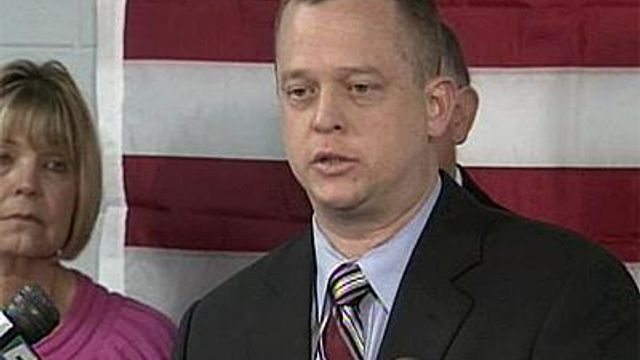Carthage community seeks answers amid grief
For the small, close-knit town of Carthage – population about 2,100 – nearly everyone has been affected in some way by Sunday's nursing home massacre, and so many are struggling with the question: "Why?"
Posted — UpdatedHe knew that, at age 89, her days were numbered. But he never expected her to die the way she did.
Lillian Dunn was one of seven patients at the nursing home to fall victim to a gunman's rage Sunday morning. She was sitting in her wheelchair when, police say, Robert Kenneth Stewart, 45, shot her to death.
"You expect them to go, because of their age, but you don't expect them to go like that," Dunn said. "It's kind of hard."
Initially, Lillian Dunn was upset about being in a nursing home, but she recently came to enjoy the company of new friends there. Bobby Dunn still doesn't know what to think, and he's still trying to make sense of what happened.
"Mama had a good life, but she didn't deserve this," he said. "She couldn't even get up. She couldn't even wheel herself anywhere."
They're reluctant to release too many details about the case, so as not to compromise the integrity of their investigation.
What is public knowledge is that a man, allegedly Stewart, walked into Pinelake around 10 a.m. Sunday with multiple weapons and began shooting. About 18 minutes later, officer Justin Garner, wounded himself, stopped Stewart with a single gunshot to the chest.
Stewart's charged with eight counts of first-degree murder and one count of felony assault on a law enforcement officer. He's being held in the medical ward at Central Prison in Raleigh.
There are more questions than answers. And there are more tears than questions.Holly Foster said she doesn’t think she can cry anymore.
"I did all of that last night," she said. "I'm sure I will many, many, many more times, but for right now, I'm just pretty much numb."
Her father, Jesse Musser, 88, suffered from Alzheimer's and Parkinson's disease. He loved to walk the halls of Pinelake. His wife is also a patient at Pinelake; she was in another part of the nursing home and was unharmed.
"Daddy was a very quiet person," Foster said.
Tessie Garner, 75; Bessie Hedrick, 78; John Goldston, 78; Margaret Johnson, 89 – also patient-victims whose stories remain to be told.
And then, there's Jerry Avant Jr., 39, a former member of the U.S. Coast Guard whose tenderness and love for the elderly inspired him to become a nurse and give back to those who gave so much in their lives.
He was doing what he loved when he died.
Jill DeGarmo met him in Christmas 2003. They planned to be married this August.
"I know he didn't want to die," she told CBS News' "The Early Show" Monday morning. "And his biggest concern was praying. He wanted me to pray with him, and he wanted – even if this was going to be it for him – he wanted to get his last moments in with God."
The pain is raw; the shock, overwhelming; and the emotion, too much to overcome.
For the small, close-knit town of Carthage – population about 2,100 – nearly everyone has been affected in some way, and so many are struggling with the question: "Why?"
"It's a hard question. It's going to take some time," said the Rev. Tom Herndon, minister at the First Baptist Church of Carthage. "It takes some time to prepare for natural disasters – we're usually given days or a few hours. But something like this – we were given no time. It was instantaneous and there was no way to prepare for this."
But Herndon and other local ministers say that, with time, the community can get through the tragedy and return to some sort of normalcy.
But they will never forget it.
• Credits
Copyright 2024 by Capitol Broadcasting Company. All rights reserved. This material may not be published, broadcast, rewritten or redistributed.






